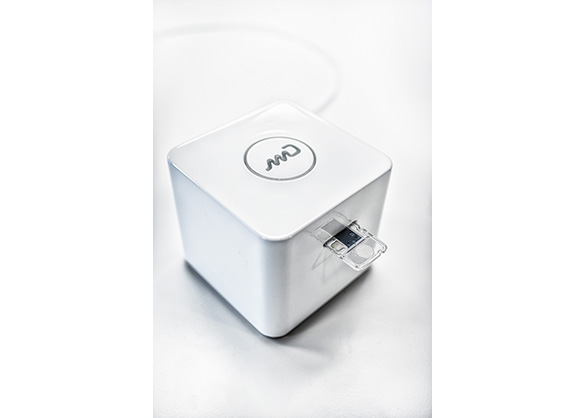Silicon-based Microfluidic Blood Test for Spaceflight
PI: Susana Zanello, Veerle Reumers (Co-I), IMEC USA Nanoelectronics Design Center, Inc.
PI: Susana Zanello, Veerle Reumers (Co-I), IMEC USA Nanoelectronics Design Center, Inc.

- TA06 Human Health, Life Support and Habitation Systems
Medical devices with minimal power, volume, and waste requirements are a priority as human deep space exploration increasingly relies on autonomous, onboard medical care. This technology is a diagnostic platform based on silicon chip technology that actuates liquid solely by capillary forces and therefore does not depend on fragile mechanical parts. This experiment is designed to test the gravity independent functionality of the nFP and the integrated test card. Researchers will also test the integrated prototype setup to generate the actual complete blood cell count data.
Currently the nFP is at TRL 4 and performs all the steps of a complete blood count with white blood cell differential. It is anticipated that the prototype device will move to TRL 5 in completing this flight testing opportunity.
• Crewed spaceflight missions, including commercial and suborbital flights
• Research and operations on the International Space Station
• Lunar and Gateway missions
• Patient point-of-care settings on Earth
Technology Details
-
Selection DateTechFlights19 (Oct 2019)
-
Program StatusActive
- 0 Parabolic
Development Team
-
PISusana Zanello
-
PI Organization
-
Co-IVeerle Reumers
-
Co-I Organization
-
SponsorNASA
-
More Information

